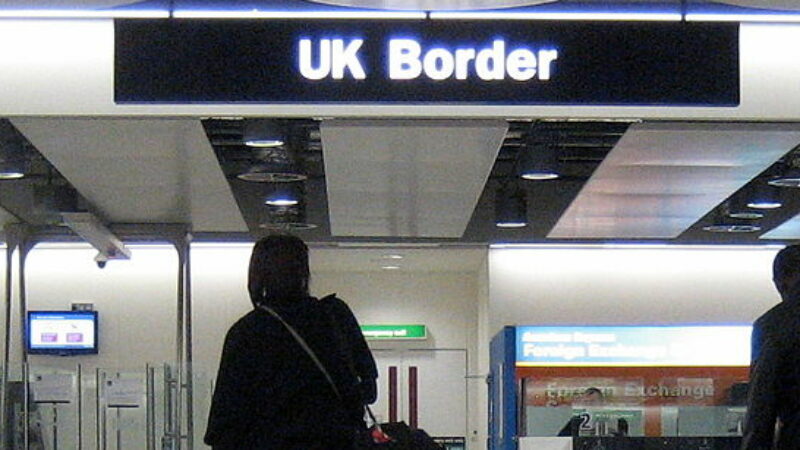
The Queen’s Speech, delivered on Monday and currently being debated in the House of Commons, has seen the return of the Immigration Bill. This is the legislation that will end freedom of movement with the EU after Brexit – controversially, with no alternative immigration system in place.
Ending free movement does not only mean changes to the way people from Europe can move here (without a visa or job offer before arrival), but also the rights they enjoy as they live their lives in the UK. People’s access to services such as the NHS, their ability to claim benefits like child tax credits and their ability to work and rent a home are all linked to their immigration status. It would seem reckless from any government to rip apart people’s legal status without alternative provisions ready to go. It shows British politicians have not learned from the Windrush scandal, and are more than willing to create a flawed immigration system that will see vulnerable people fall through the cracks.
The Home Secretary has confirmed that all EU citizens who fail to apply by the deadline will be at risk of detention and deportation. Of course, this comes as no surprise to those of us who have been active in migrants rights campaigns for a while. Detention and deportation is the logical end point of a system of immigration control and enforcement that is designed to limit people’s ability to participate in society as full citizens. And that has been the reality of the British hostile environment for migrant communities from non-EU countries for a long time.
Labour must oppose the Immigration Bill and, as it is conference policy, argue for the defence and extension of free movement – that much is obvious. But while we wait for a general election and a Labour government, there are other things we can do to support vulnerable groups.
Last month I signed up to volunteer with Settled, a new charity set up to support vulnerable and hard to reach EU/EEA citizens in the UK. Its mission is to reach out to those who are at risk of losing their right to live and work in the UK after Brexit. As a volunteer, I will guide, inform and assist them with the settled status application process. One might ask why this is necessary. After all, the Home Office is running an elaborate PR campaign on social media, boasting how easy it is to apply for settled status. Apparently, all you need is a passport and an android phone, and you are ready to go!
But what seems easy on paper often is not so straightforward when we are dealing with people’s actual, often more complex, lives. To be eligible for settled status, a European citizen has to provide proof of five years’ continued residence in the UK. Again, this can be simple: my own application took only a week to process as I have worked in the UK continuously for a five-year period. But in some cases it may be more difficult to prove residence. The government’s own records might be incomplete or cover only recent years. Life circumstances can also mean that a person does not have records in the electronic systems.
A lack of English language skills, not being able to access and navigate technology as easily, or a disrupted work or home life are among the many factors that can complicate an application. This might impact the elderly, stay-at-home parents or carers, those with disabilities or chronic illnesses. Vulnerable workers might be paid cash-in-hand, might not have a National Insurance Number, P45s and employment contracts.
Homeless migrant communities are another particularly vulnerable group who will struggle to prove residency because of their circumstances. Their situation is worsened by the fact that many are rightly scared to access advice. The Home Office has the habit of infiltrating “safe spaces”, providing support for immigrants to regularise their immigration status. In reality, Home Office Immigration Enforcement personnel is there to find homeless migrants to remove them from the country.
The shameful treatment of migrant communities by the British state can only be resisted if we organise together in solidarity. Settled wants to build partnerships with other organisations to reach as many people as possible. The goal is to tap into networks to organise information sessions about the EU settlement scheme specifically designed for vulnerable citizens and identify those who might need one-on-one support to complete their application. We can also signpost the more complex cases to Settled’s pro-bono legal partners.
As Labour activists, we are often at the heart of our communities. Whether we serve as councillors, support MPs with their casework or canvass our neighbours, we are often acutely aware of the difficulties vulnerable communities face when trying to access services, and immigration is often a key element of our MPs’ day-to-day casework. I encourage activists and local parties to get in touch and help us reach and organise these communities. Whether you are a Labour member, staffer or trade unionist, if we work together I am sure we can make a big difference.




More from LabourList
‘Tackling poverty should be the legacy of Keir Starmer’s government’
‘The High Court judgment brings more uncertainty for the trans community’
‘There are good and bad businesses. Labour needs to be able to explain the difference’